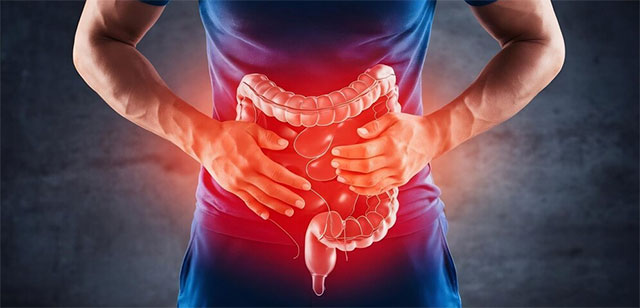Gastrointestinal Cancer
Gastrointestinal cancer refers to cancers that affect the digestive system, including the esophagus, stomach, liver, pancreas, small intestine, colon, rectum, and anus. It is one of the most common types of cancer worldwide.
Gastrointestinal cancer encompasses cancers affecting the digestive system, including the esophagus, stomach, pancreas, liver, and intestines. Early detection and specialized treatment are crucial. Dr. Arvind Kumar is one of the best gastrointestinal oncologists in Delhi, offering expert care and advanced treatment options for patients.
Signs and Symptoms of Gastrointestinal Cancer
-
Persistent abdominal pain or discomfort
-
Unexplained weight loss
-
Changes in bowel habits, such as diarrhea or constipation
-
Blood in the stool or vomit
-
Fatigue or weakness
Types of Gastrointestinal Cancer
Gastrointestinal cancers can be classified into several types, including:
-
Esophageal Cancer: Affects the esophagus, the tube that carries food from the throat to the stomach.
-
Stomach (Gastric) Cancer: Develops in the stomach lining and can spread to other organs.
-
Colorectal Cancer: Affects the colon and rectum and is one of the most common forms of gastrointestinal cancer.
-
Liver Cancer: Begins in the liver and can be primary (originating in the liver) or secondary (spread from another organ).
When to Consult a Doctor
Gastrointestinal cancer can manifest through symptoms like abdominal pain, unexplained weight loss, and changes in bowel habits. If you notice these signs, it's crucial to consult a healthcare provider. Dr. Arvind Kumar has expertise as the best gastro surgeons in Delhi, specializing in GI cancer surgery for effective treatment.
Causes
Gastrointestinal cancers can be caused by a combination of genetic, lifestyle, and environmental factors. Risk factors include a family history of cancer, smoking, excessive alcohol consumption, and a diet high in processed foods.
Risk Factors Involved in Gastrointestinal Cancer
-
Age: The risk of gastrointestinal cancer increases with age.
-
Diet: A diet high in red and processed meats and low in fruits and vegetables can increase the risk.
-
Obesity: Being overweight or obese is a significant risk factor for several types of gastrointestinal cancer.
-
Smoking and Alcohol Use: Both are linked to an increased risk of gastrointestinal cancers, particularly esophageal and stomach cancers.
Gastrointestinal Cancer Diagnosis
Diagnosing gastrointestinal cancer typically involves:
-
Endoscopy: A procedure that uses a flexible tube with a camera to examine the digestive tract.
-
Imaging Tests: CT scans, MRIs, and PET scans help to detect the presence and extent of cancer.
-
Biopsy: A sample of tissue is taken from the suspicious area to confirm the diagnosis.
Stages of Gastrointestinal Cancer
Gastrointestinal cancer stages range from 1 to 4:
Stage 1: The cancer is confined to the organ of origin.
Stage 2: The cancer has spread to nearby tissues or lymph nodes.
Stage 3: The cancer has spread to surrounding tissues or organs.
Stage 4: The cancer has spread to distant organs such as the liver, lungs, or bones.
Treatment of Gastrointestinal Cancer
Surgical Intervention
Surgery is often used to remove gastrointestinal tumors and may involve:
-
Resection: The surgical removal of the tumor and possibly surrounding tissue.
-
Debulking: The partial removal of the tumor if complete removal is not possible.
Chemotherapy
Chemotherapy uses drugs to destroy cancer cells and may be used before surgery (neoadjuvant therapy) or after surgery (adjuvant therapy).
Radiation Therapy
Radiation therapy uses high-energy rays to target and destroy cancer cells. It is often used in combination with chemotherapy.
Prognosis of Gastrointestinal Cancer
The prognosis for gastrointestinal cancer varies depending on the type, location, stage, and treatment response. Early detection and treatment improve the chances of a favorable outcome.
GI cancer surgeon & Gastrointestinal Cancer Surgeon in Rajinder Nagar,
Rajendra Place,
Karol Bagh,
Patel Nagar,
Kirti Nagar,
Moti Nagar,
Jhandewalan,
Shadipur,
Shastri Nagar,
Paharganj.
for more details please contact us at +919818826423.
-
Gastrointestinal Cancer Surgeon in Rajinder Nagar
-
Gastrointestinal Cancer Surgeon in Rajendra Place
-
Gastrointestinal Cancer Surgeon in Karol Bagh
-
Gastrointestinal Cancer Surgeon in Patel Nagar
-
Gastrointestinal Cancer Surgeon in Kirti Nagar
-
Gastrointestinal Cancer Surgeon in Moti Nagar
-
Gastrointestinal Cancer Surgeon in Jhandewalan
-
Gastrointestinal Cancer Surgeon in Shadipur
-
Gastrointestinal Cancer Surgeon in Shastri Nagar
-
Gastrointestinal Cancer Surgeon in Paharganj
